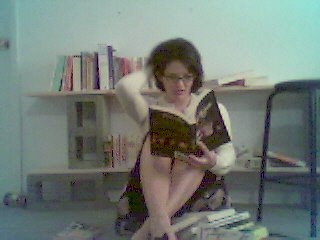Approaches to Philosophy and Literature
The divide between scholarly disciplines does a disservice to the academic field as a whole. Although interdisciplinarity is a highly touted goal of many an institution, putting this into practice has proven much more difficult thanks in large part to departmental in-fighting, institutional politics and jurisdictional wars. Despite these obstacles, the need persists for interdisciplinary scholarship. In particular, the disciplines of philosophy and literature have much to be gained from one another. I propose two methodological improvements to the fields.
1) The literary approach to the study of philosophical texts.
Vital to the study of literature, contextual information is often neglected in the discussion of philosophy. Beyond simply a historical account of chronological occurrences of ideas and responses, philosophical texts should be given the same attention to context afforded to literary texts. Who is the author? What sort of intellectual heritage is the author emerging from? In what ways was the text disseminated? Is there a reception history for the texts? How has the text influenced other authors (literary or philosophical - or otherwise)?
The amount of information of this fashion we have accumulated on literary texts constitutes a significant portion of the scholarship in the discipline. Any literary scholar or critic would deem such knowledge invaluable. Surely there is something valuable to be gained in study of this sort applied to philosophy.
2) Philosophical pedagogy as applied to literature and literary criticism in particular.
Ask any philosophy student who has studied literary theory. The teaching approach common to literary theory perpetuates the mysticism and inaccessibility that specialised scholarship is forever accused of promoting. Literary theory is most often taught independent of historical or discursive context. Likewise, it is taught in the absence of transparent, step-by-step explication of the thesis, motivation, and premises of the argument and yet there is an argument set forth by each literary theory. Granted, in many cases it is not formatted to meet the rigorous standards of the Western analytic tradition of philosophy but it is nonetheless constructed as an argument that has been textually supported and made open to critical evaluation. This is not to say that we should completely abandon the literary tradition of study when approaching literary theory. I am saying that we need to re-evaluate the methods by which we teach and employ literary theory. I am proposing a conjoining philosophical and literary method: analytic rigour and clarity combined with contextual and discursive understanding.
1) The literary approach to the study of philosophical texts.
Vital to the study of literature, contextual information is often neglected in the discussion of philosophy. Beyond simply a historical account of chronological occurrences of ideas and responses, philosophical texts should be given the same attention to context afforded to literary texts. Who is the author? What sort of intellectual heritage is the author emerging from? In what ways was the text disseminated? Is there a reception history for the texts? How has the text influenced other authors (literary or philosophical - or otherwise)?
The amount of information of this fashion we have accumulated on literary texts constitutes a significant portion of the scholarship in the discipline. Any literary scholar or critic would deem such knowledge invaluable. Surely there is something valuable to be gained in study of this sort applied to philosophy.
2) Philosophical pedagogy as applied to literature and literary criticism in particular.
Ask any philosophy student who has studied literary theory. The teaching approach common to literary theory perpetuates the mysticism and inaccessibility that specialised scholarship is forever accused of promoting. Literary theory is most often taught independent of historical or discursive context. Likewise, it is taught in the absence of transparent, step-by-step explication of the thesis, motivation, and premises of the argument and yet there is an argument set forth by each literary theory. Granted, in many cases it is not formatted to meet the rigorous standards of the Western analytic tradition of philosophy but it is nonetheless constructed as an argument that has been textually supported and made open to critical evaluation. This is not to say that we should completely abandon the literary tradition of study when approaching literary theory. I am saying that we need to re-evaluate the methods by which we teach and employ literary theory. I am proposing a conjoining philosophical and literary method: analytic rigour and clarity combined with contextual and discursive understanding.

